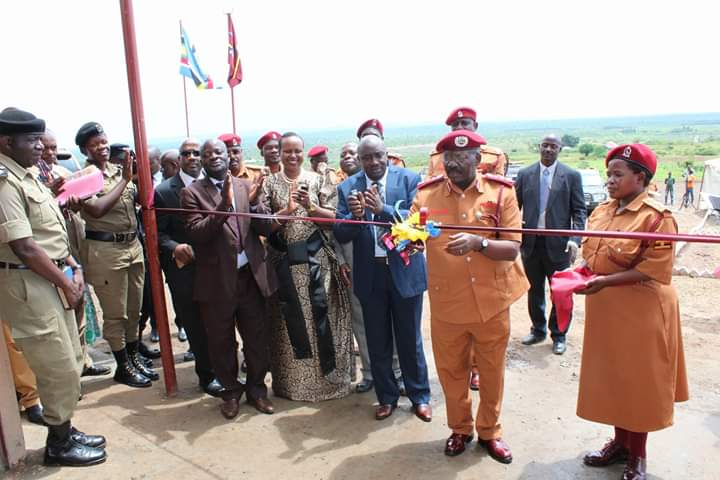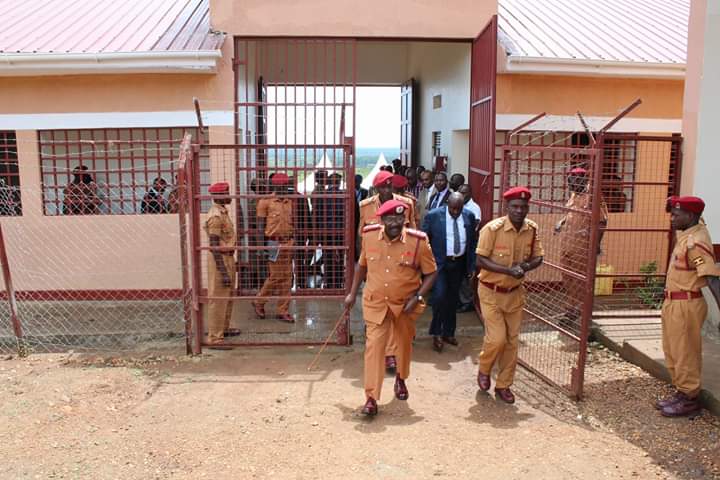
KAMPALA — In 1983, a young Johnson Byabashaija, fresh from university and having tried his luck at teaching, sought to acquire a gun for personal security in a time he describes as a period of survival for the fittest in Uganda. The only lawful option available for him was to join security forces.
“Uganda was in a dark period of its history. There was no hope for short term improvement. I searched for a job where I was allowed to carry a gun to protect myself,” Byabashaija, a Veterinary doctor by training says.
Following the controversial election in 1980, the ruling government launched efforts that lasted more than four years in which they destroyed challengers to the regime. The efforts resulted in devastation and loss of thousands of lives around the country.
The army was filled with men of little training and therefore no discipline. The soldiers, armed and in uniform engaged in genocidal purges against Ugandans in Luweero. Targeting supporters of Museveni’s guerrillas, the soldiers carried out massive population removal in vast areas which affected more than 750,000 people.

The army created camps which they subjected to military control and subsequently abuse, Civilians outside the camps were presumed to be guerrilla sympathisers and were treated accordingly. Farms were looted as owners were killed. “Practicing veterinary medicine upcountry was dangerous,” Byabashaija tells PML daily, adding: “There was a war raging in in Luweero Triangle, a place where all the country’s cattle were. That is where one aspired to work.”
“At that time if you had no gun you were nothing. I can assure you, it had never occurred to me previously that I would one day join the armed forces.”
“I applied and was admitted as a cadet in the Uganda Prisons Services in 1983,” he says. Serving under the UPS, he could now comfortably practice veterinary medicine at the prisons farm in Kigo on Entebbe Road.
The last 37 years have been for Byabashaija, a journey of learning and growth. “I worked myself up in the service. For five years I was the deputy officer in charge at Kigo, after which I served for eight years as officer in charge at Kigo Prison. I was then moved to prisons headquarters,” Byabashaija says, adding that his rise from a veterinary officer to becoming commissioner General of prisons has been for him an interesting life full of changes as well as challenges.

“I have enjoyed and still enjoy every single day and it has certainly become my passion,” the man who recently got a two-year renewal of his contract says.
The father of four was born in a humble family of a teacher in Rukungiri in 1957. He attended his primary and O’Level in Rukungiri, Kisoro and Kabale before joining Makerere College for A-level. He later went on to study Veterinary Medicine at Makerere University where he graduated in 1982 and later pursued a Post-graduate Master of Science at the University of Glasgow which he completed in 1986.
Uganda Prisons Services have over the years earned themselves accolades for reform from a place for punishment and torture in the previous regime to becoming the best correctional system for prisoners in Africa, an achievement Byabashaija attributes to discipline and commitment from all the officers.
“We became committed to what we were doing because we grew up in the system. My predecessor (the late Joseph Etima) is the one who started reforms not only in Uganda but in Africa. Etima called for a conference here (Kampala) of all commissioners of prisons in Africa in 1996 and they came up with what is called the Kampala Declaration on Prison Conditions in Africa.
The Kampala Declaration recognized that prisons in Africa had poor conditions. This was the first reform that Etima advocated for. Then he advocated for the education of inmates,” Byabashaija says.
“With a little more resources, we improved the system and we are now part of the education system in the country. You cannot miss basic education because you are in prison,” he adds.
Byabashaija attributes the institution’s achievements to his predecessor Etima who he says was also the first advocate of the humane treatment of prisoners. He says because of that, there are no major human rights cases against the Prisons Service.
On how he manages the service, the clergyman says: “We have always been systematic in whatever we do. The prisons standing orders which we inherited from Her Majesty’s Prisons Service in 1962 have not changed much. The way prisons are managed in the U.K— the systems in place for admission, discharge and rehabilitation are the same. I think we have just perfected them and we have ended up being one of the best correctional services in Africa and the fourth best in the world.”
I can tell you that out of 100 convicted prisoners they give me; only 20 re-offend and come back. This is the best rate of recidivism on the continent and fourth in the world—just behind Norway, Sweden, Denmark and Singapore.

Having joined the service as a young man and being that it is the only place he has worked, Byabashaija says he values training of his staff who are all recruited on merit.
I pay tribute to my staff and middle managers; they are recruited on merit, they are competent and we have trained them well. I don’t have an Assistant Commissioner who has not gone through Uganda Management Institute’s Post Graduate Diploma in Public Administration and Management. So I also have competent managers. I have also recruited professionals; electrical, agricultural and mechanical engineers who can do some of these things which we are doing. So nothing in prisons has come by chance,” he said in an interview with the Independent Magazine recently.
With about 7,000 uniformed and 300 non-uniformed personnel working in the country’s 224 prisons. Byabashaija admits that one of their challenges is managing an average of 32,000 persons in prison daily.
“Small prisons function as local ‘reception’ centres; the larger ones hosting long termers are the more interesting units as they have the critical mass to offer correctional programs to convicts in prison. With a designed capacity of 16.000 persons, the daily average is approximately 32.000 persons in prison, so congestion is one of my major challenges,” he says.
Fortunately, according to Byabashaija, government is executing the ‘Case Backlog Quick Wins’ project to reduce the backlog in the legal system. “It is our strong will to solve the problems resulting from congestion, like improving the humanitarian situation of people in prison, unfortunately we are highly dependent on others in the Justice Law and Order Sector. It is my strong desire to not only improve the health standard in prisons, but improve the sanitation as well,” he says.
He boasts that so far they have managed to solve the challenge of feeding and dressing up all the people in prisons.
After 15 years at the helm of the Prisons Service, Byabashaija recently got a two-year reappointment as Commissioner General, in a process that received a lot of media coverage with some media outlets misreporting the circumstances.
It was at first stated that Parliament had rejected him on account of his age. However, it later became clear that the Appointments Committee of Parliament deferred his appointment to hear from President Museveni, the appointing authority, on the period of the new contract.
Byabashaija’s long term desire is to completely eliminate the perception that prisons are institutions of punishment. “Society will be safer with a prison system that excels as a correctional organization. I am proud to lead the UPS management team in the successful transformation towards a professional organisation of a truly correctional based institution,” he says.





